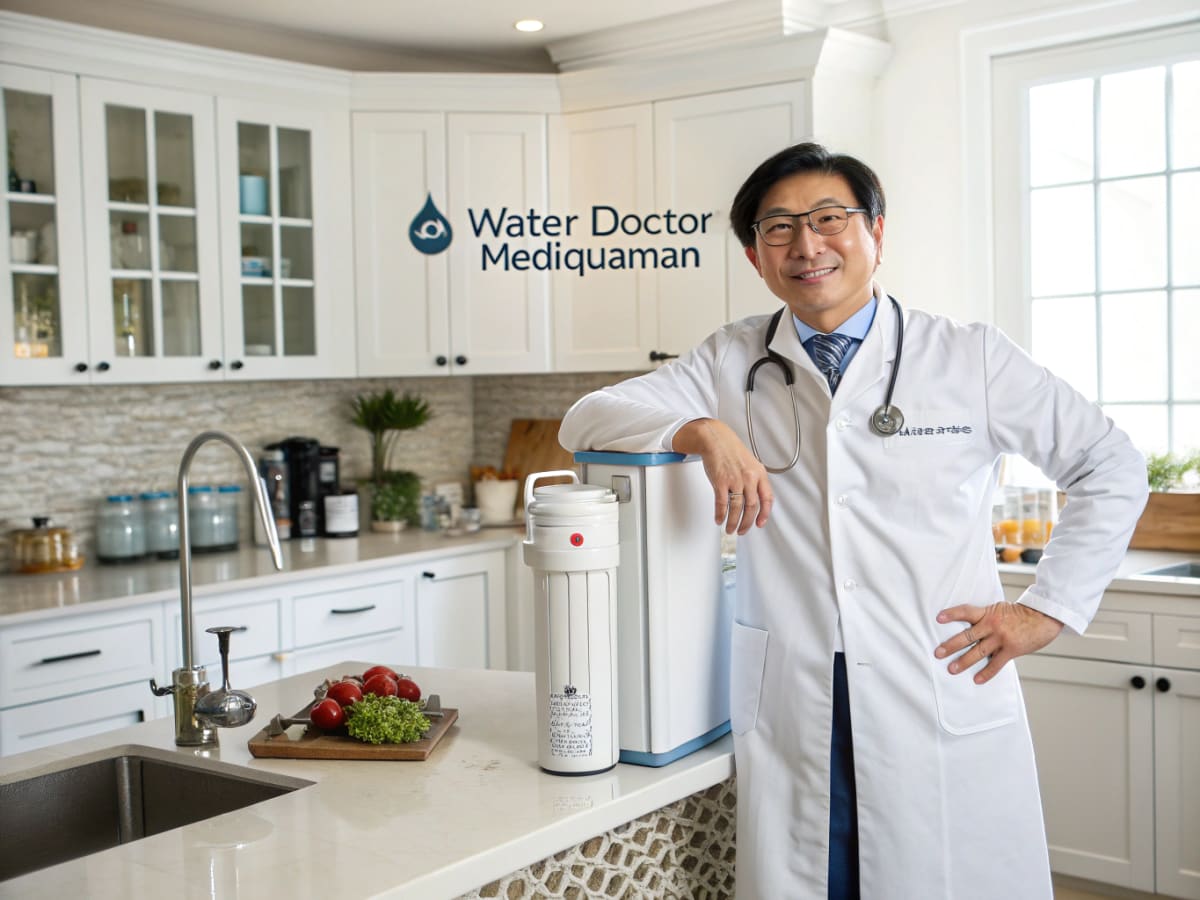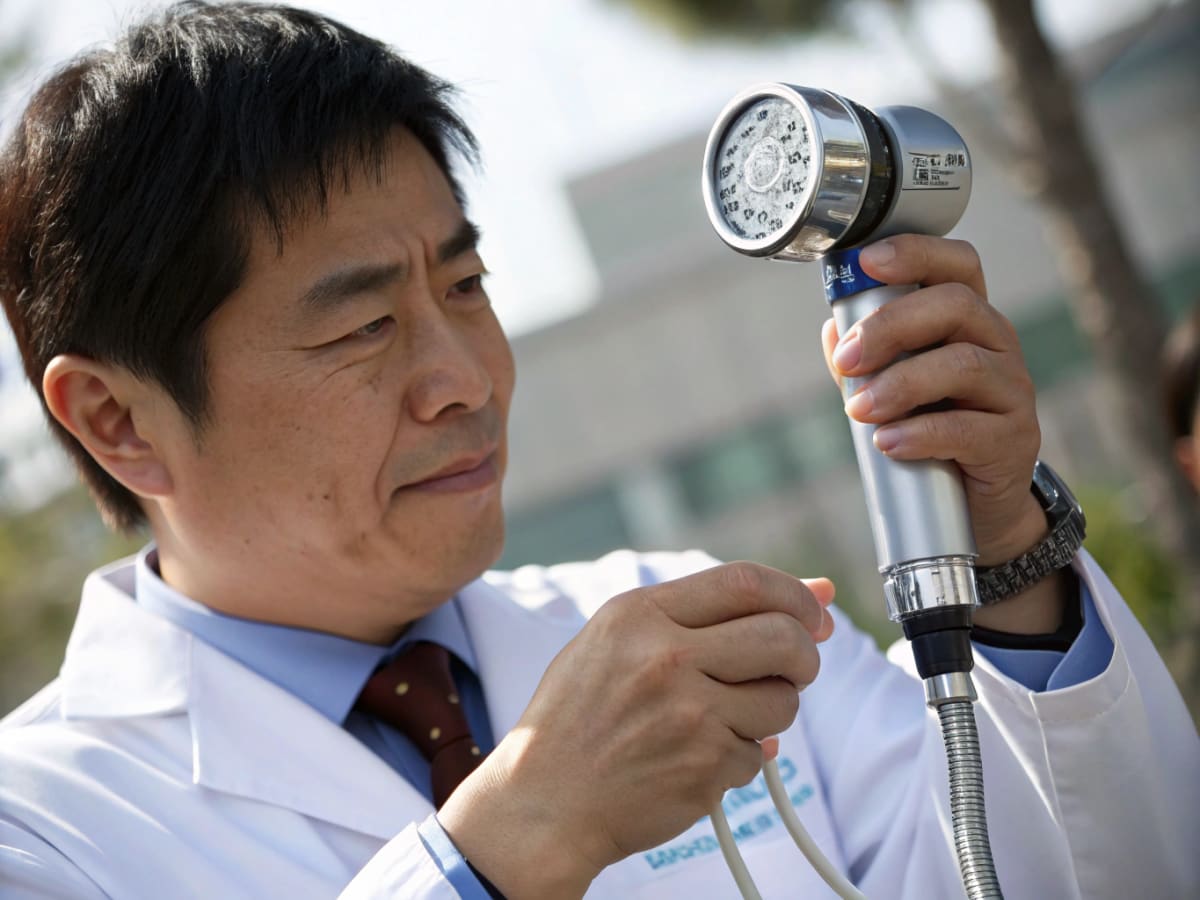Three Conditions You Must Check Before Purchasing an Ionizer!

Beware of Buying an Ionizer Just Based on Ads! The Water Doctor’s Real Purchasing Guide
Hello! This is Mediqua Man, the guardian of water health at home.
Have you been feeling bloated and having digestion issues frequently lately? Considering it's the water you drink every day, you might have wondered if just purified water is enough. Interest in "good water" has risen, and many are now looking into ionizers. But when you try to purchase one, the complex terms and endless ads can make it difficult to choose the right product.
Today, I'll help you clear up that confusion. Since this is an appliance that produces the water your family drinks daily, I'll highlight the essential points you must scrutinize.
The First Step to a Healthier You: What Is a Good Ionizer?
Unlike simple water purifiers that just clean your water, an ionizer is a 'medical device' that uses electrolysis to separate water into alkaline and acidic water. The key here is that alkaline water can help improve digestive symptoms.
To select a good product among the many available, you must check these three points:
- Does it have the Ministry of Food and Drug Safety certification as a medical device?
- What is the material of the electrode plate that determines electrolysis performance?
- Does it have excellent filter performance, which is the fundamental function of a water purifier?

First, Always Check the ‘Medical Device Approval’ Number
This is the most crucial criterion. There are many products on the market that just slightly increase the pH level of water using a filter. But we're looking for an ionizer for its functionality, right?
The Ministry of Food and Drug Safety grants the ‘medical device’ approval only to products that have proven to help with chronic diarrhea, indigestion, abnormal fermentation in the stomach, and excessive stomach acid through clinical trials. If you can't find the ‘medical device approval number’ in the product details or on the device, you might not be able to expect those functional effects. Rather than relying on advertising phrases, checking this approval number alone can make a reasonable choice.
Second, You Must Consider the Heart of Electrolysis, the ‘Electrode Plate’
The core technology of an ionizer is definitely ‘electrolysis’. As water passes through the electrode plate, it is separated into alkaline and acidic water. The performance and durability of the electrode plate determine the quality of the water.
The ideal material is platinum-coated titanium. Titanium is highly resistant to corrosion, and platinum excels in electrolysis efficiency, making it ideal for producing alkaline water. Some products use cheap materials to cut costs, so make sure to check the material and structure of the electrode plate, as well as whether it has an automatic cleaning feature.
Third, Don't Forget the Basic: The Filter System
No matter how great the functions are, it's pointless if the raw water isn't clean, right? Since an ionizer also functions as a water purifier, the performance of the filter is very important.
Ensure it has a composite filter system consisting of at least two filters. There should be a primary filter that removes larger particles like rust and debris, and a secondary filter (usually a carbon filter) that eliminates residual chlorine, heavy metals, and fine harmful substances. Consider the purification capacity, replacement cycle, and the ease of replacing the filter for greater satisfaction in usage.
Water Doctor's Practical Usage Tips
With an ionizer, you're not limited to just drinking water. With a little creativity, it can benefit your daily life in various ways.
- Step-by-step use of alkaline water: Start with level 1 at a pH of about 8.5 to give your body time to adapt. As you become accustomed, you can consume water at higher levels. Using it when cooking rice enhances its taste, and it can also enrich the flavor of tea or coffee.
- Uses of acidic water: Acidic water produced during the electrolysis process is mildly acidic and can be used for various household purposes. For instance, it can be used as a final rinse during facial cleansing, or for simple cleaning of cloths, cutting boards, and vegetables.
Still Have Questions About Ionizers? (FAQ)
Q. Is it okay to drink alkaline water when taking medication?
A. No, it's better to take medication with purified ‘water’ rather than alkaline water, as the alkaline water might affect the medication's ingredients. Most ionizers have a purification feature, so make sure to set it to purification mode when taking medication.
Q. Is installation or maintenance complicated?
A. Recent products are designed for easy installation to suit kitchen environments. Filters usually need to be replaced every 6 months to 1 year and are often built for direct replacement. If there's an electrode plate automatic cleaning feature, maintenance can be even more convenient.
Suitable for People Who
- Experience discomfort due to chronic indigestion
- Wish to improve the quality of water they drink daily
- Want to gift health and convenience to their parents
The easiest habit to change your body is drinking good water. Reference the criteria shared today to wisely choose the right product for your family.
If you didn’t have clear criteria for choosing a good ionizer, I hope today’s content was helpful. Since it's water that touches our bodies directly, it's important to carefully check its functionality and safety. If you have any questions about the product, please contact us anytime through Mediqua at Contact.

Comments
Post a Comment